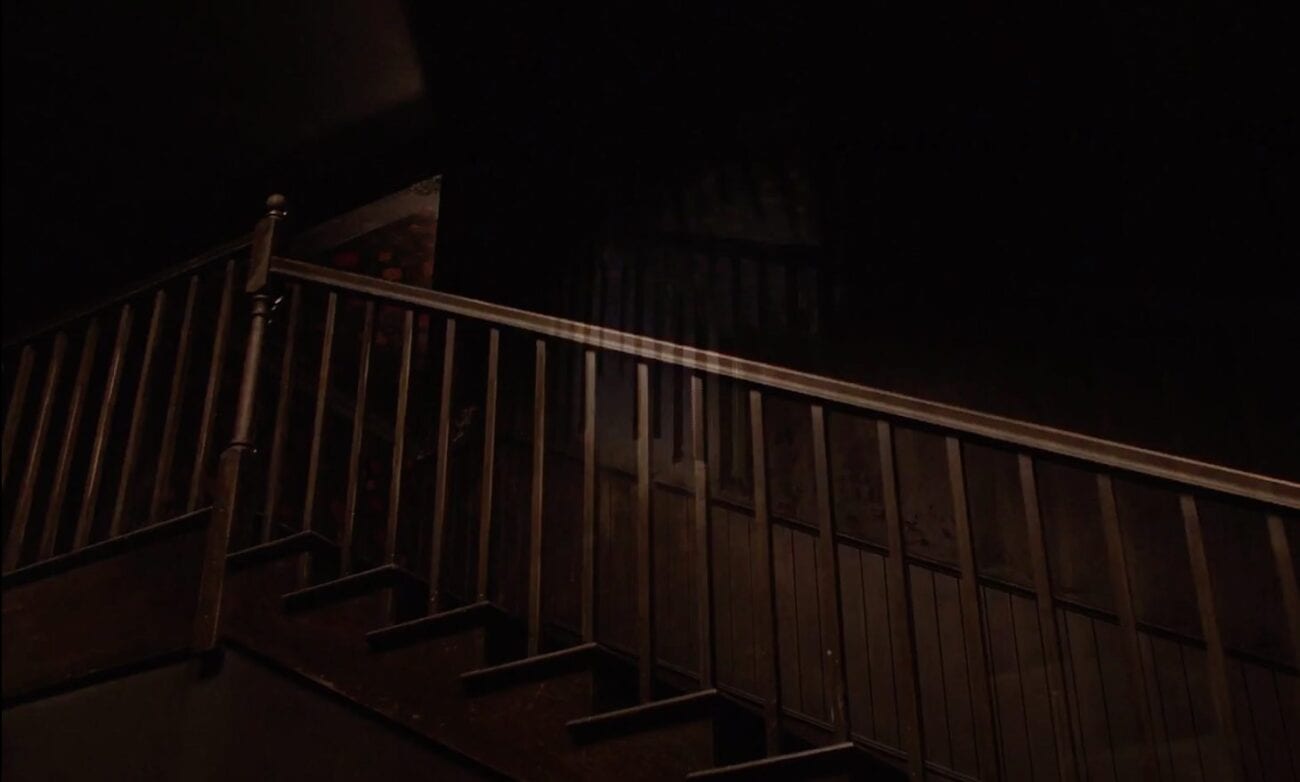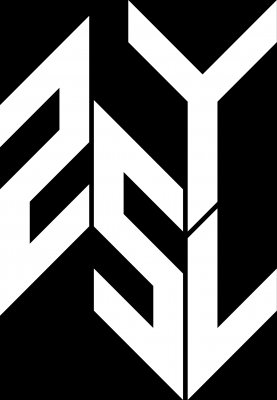25 years ago today, on May 27th, 1996, Scott Hall, formerly WWF superstar Razor Ramon, walked out through the crowd on the first two-hour edition of WCW Monday Nitro and obliterated the received wisdom of how an episode of American wrestling should be presented on TV. He didn’t do much, but he didn’t have to; by the end of the episode, WCW was the talk of the wrestling business and Scott Hall was the reason.
Why is this incident so important, still to this day? How did one man’s debut for a rival company impact the business to such a wide extent?
Let’s take a look back. Too Sweet.
Challenging Billionaire Ted
During the first hour of Nitro, the audience’s attention was noticeably diverted away from a match between The Mauler and Scott Doll (and who could blame them?) by something happening off-screen. As the audience began to cheer, a man in denim jeans and waistcoat was seen walking from left to right through the audience and came down a couple of rows before hopping the guardrail.
As commentators, Tony Schivone and Larry Zybysko uttered confusion on their headsets, and the wrestlers in the ring appeared to be equally confused, with referee Nick Patrick having to push The Mauler back to the ropes to leave the ring, Scott Hall entered the ring with a mic and uttered these immortal words:
Hey! You people, you know who I am but you don’t know why I’m here. Where is Billionaire Ted? Where is the Nacho Man? That punk can’t even get in the building. Me? I go wherever I want, whenever I want. And where, oh where, is Scheme Gene? ‘Cause I got a scoop for you! When that Ken doll likealike, when that weatherman wannabe comes out here later tonight, I gotta challenge for him, for Billionaire Ted, for the Nacho Man, and for anybody else in ‘Dubyah Cee Dubyah’ (makes yokel laughing noises). Hey, you want to go to war? You want a war? You’re gonna get one!
With that, Scott Hall left the ring, throwing his toothpick into the camera for good measure. But he wasn’t quite finished yet.
At the show’s conclusion, after a Scott Steiner-Sting main event (two major faces of WCW remember), Eric Bischoff and the late, great Bobby ‘The Brain’ Heenan, commentators for the second hour, were commenting on the match they had just seen. As ‘The Brain’ was listing off the reasons why there were no friends in wrestling, Eric suddenly threw his hands up and said “Alright, alright” to someone off-screen. That person was quickly revealed to be Scott Hall, who again had a mic:
Lookee here.Ken doll, you got such a big mouth. We are sick of it. Hey, this is where the big boys play? What a joke! I tell you what: you go tell Billionaire Ted, you tell him get three of his very, very best. Maybe the Nacho Man—Oooh—no. Maybe he’ll get The Stinger. Oooh, I’m so scared. You go get anybody you want, because we, we are taking over. You wanna go to war? You want a war? You got one! Only let’s do it right; in the ring, where it matters. Not on no microphones, not on no newspapers or dirtsheets. Let’s do it in the ring where it matters, iff Billionaire Ted and his big boys, if they got any gots. Because we are coming down here and like it or not, we are taking over.
With that, Scott Hall threw his toothpick at Bischoff before making a mock-scared gesture with his hands and leaving.
Like I said, Hall didn’t do so much. But with just two little segments, he turned wrestling on its head. Here’s why.
Working the Monday Night War
While new debuts appearing out of the crowd unexpectedly is a trope that is reasonably well-worn now, it just wasn’t done then. While Vince McMahon had dragged wrestling away from the smoky halls and studios and into the big arenas, in a lot of ways he was still presenting an extremely exaggerated version of what went before. There were still good guys and bad guys. There were still larger than life characters. There were still titles and interviews and wrestling matches. It’s just the way it was presented was more akin to what we now know as the Sports Entertainment model and not what Vince saw to be old-fashioned ‘rasslin.
When Eric Bischoff launched Nitro on TNT for WCW in 1995, he was still behind WWF in the ratings and popularity stakes, even with the increases Hulk Hogan had brought to the table. Bischoff knew that for Nitro to be successful, it really had to stand out and provide apparent ‘spontaneity’ and surprises so as to keep audiences coming back week after week in case they missed some bombshell that the promotion dropped on a Monday night.
Some of these surprises involved debuting—actually, returning—talent, with Lex Luger appearing on the debut episode of Nitro just as his WWF contract had expired and with that company not being aware of Luger’s contact with WCW. There was also the case of the returning Medusa , who appeared at the start of Nitro dropping her WWF women’s belt in a trash can over at commentary. Both were seen as shocking moments and completely compelling reasons to watch Nitro. Returning talent had never been shown in such a way before, putting down their former paymasters—both figuratively and literally.
But Scott Hall was a big deal than both Medusa and Luger. While Luger was a former WCW stalwart who had a very uneven run with the WWF, and Medusa was, unfortunately, a victim of a mainstream American wresting culture that didn’t take women’s wrestling particularly seriously, Scott Hall had been a legitimately big star for the opposition. The signing of Hall to WCW had been seen as a very big deal within the industry and outside it, and it was certainly thought, unlike Luger and Medusa, it would weaken the WWF’s star power.
So, it was no surprise when Scott Hall was seen on a WCW show for the first time. The big surprise was how he made his debut appearance. Usually, a new star or signing would be promoted for weeks beforehand on the company’s programming, with interviews and vignettes, before finally making an appearance in the arena and wrestling or giving a promo direct to the audience. They might even get involved in another match and start an angle with another performer.
Here, Scott Hall was never announced or advertised to be on the show. He had never been mentioned previously on WCW programming leading up to this show. In fact, everything was designed to give the impression that Scott Hall was not supposed to be here, on this show, doing these things. From Hall walking through the crowd and jumping the rail, to the match being stopped as if this wasn’t supposed to be part of the show, to Hall speaking cryptically to the audience as if he wasn’t cutting a wrestling promo but talking legitimately to the WCW brass. If you notice, nobody in that first episode even refers to Scott Hall by name; his name is never even mentioned. In fact, the closest anybody from WCW gets to acknowledging in this episode that they know who Hall is is when Larry Zybysko cries out, “what’s he doing here?” as Hall hopped the rail. For all intents and purposes, this was a man who was not be addressed and was not supposed to be here. He was going rogue.
Although Brian Pillman had been doing the ‘Loose Cannon’ works in the preceding months, it was still very new for a wrestler to be presented in such a way that it appeared to make the audience question their certainty as to what was going on. It was a well-known fact Scott Hall had signed with WCW. But why was he being treated like he wasn’t? Why was he antagonising WCW like he had allegiances elsewhere? What was going on? It would be hard to pull off this uncertainty now, but then, it was the most dramatic thing you’d seen in wrestling to that point.
Old Fashions & New Generations
Perhaps what gave the angle such success was the way that the real-life competition between WCW and the WWF was hinted at and used to propel the feud without actually saying it in any such words.
Since Nitro launched, he made it clear that he wanted to win the rating war and be the number one wrestling promotion in North America. In the process, the competition between WCW and WWF became extremely aggressive and bitter. The Monday Night War has gone down in history for this very reason.
It can be argued that Bischoff made the first moves, not only running against Raw on a Monday night but also giving away WWF results live on-air and having Medusa put her WWF title belt in the bin on-camera. Exciting television it certainly was, but it is also understandable why Vince and the WWF took none too kindly to such antics.
It also says a lot about the state of the WWF at the time that their response was to air the infamous ‘Billionaire Ted’ skits, mocking Ted Turner and former WWF-now WCW stars like Hulk Hogan and Macho Man Randy Savage for being too old. The implication was clear: WCW was built on WWF’s cast-offs, a generation of old men who were past it.
It didn’t escape people’s notice, however, that WCW was bringing in some of the best young wrestling talents in the world at that point, such as Eddie Guerrero, Chris Benoit, Rey Mysterio Jr and Dean Malenko to shake up their roster and provide a more exciting wrestling product. Incidentally, the WWF would fall into its own criticism, bringing the Ultimate Warrior back in 1996 and having him wrestle Jerry ‘The King’ Lawler on a major WWF Pay-Per-View. It would take two hard years of slog for the WWF to once again become the top dog in the wrestling world.
Scott Hall furthered WCW’s case for becoming young and exciting. Not only was he a big WWF ex-star but, although he actually debuted in 1984 (only seven years after Hulk Hogan), he was still seen as a big young star, someone who had been a major part of the WWF’s ‘New Generation’ campaign, which had been designed to differentiate the then-current roster from the previous grapplers of the ‘Hulkamania’ years.In effect, Hall was seen as being more relevant to contemporary wrestling than Hulk Hogan or Savage. If anything deflates the ‘Billionaire Ted’ skits the WWF were putting out, that fact does it best.
What’s interesting to note, though, about the Billionaire Ted skits is that they were the first time the WWF had acknowledged WCW in such a blatant way on-air. Wrestling was becoming self-referential in a way it had never been before, and Scott Hall was about to use that fact to kick off one of the most momentous storylines in wrestling history.
Bringing Real-Life Into The Ring
What is really clear when looking back the promos Scott Hall cut on that fateful night on Nitro was that, stopping just short of the actual company names, Scott Hall was essentially painting himself as an invader from the WWF who had come to put paid to the competition he felt was playing outside of the rules.
It was a masterstroke. Companies very rarely addressed each other on air. Now they were being used as heels on another company’s programming. The bitterness of the Monday Night War was well known in the wrestling community, even to casual viewers who could not escape the jabs each company continually threw at the other.
Using that to fuel a top storyline on their show, WCW brought a level of realism onto their programming that had not been seen to this extent before in wrestling and it gave WCW’s storylines and programming an edge that the WWF just did not have in 1996. WCW seemed to be breaking the taboo of keeping kayfabe and was rubbing the dirty laundry of the business into everyone’s faces for all to say. The smart marks, as Brian Pillman christened them, loved it, and everyone else was completely captivated. This was brand new, and outside of small regional promotions then, like USWA or ECW, the likes of this had never been seen before in mainstream wrestling.
The fact that Scott Hall referred directly to ‘Billionaire Ted’ is very telling. He is directly aligning himself with the WWF, the company that made those promos, by using that name. And by continuously demanding to know if WCW wanted a war, he was directly pointing to the rating war between WCW and WWF without actually saying it. He was also painting WCW as the villains, which at first seemed odd, but made sense. There was no way a pro-WWF character on WCW programming was going to be the face (not until the NWO became too cool for school, anyway).
But it also gave Hall justification for invading WCW by using WWF’s real-life anger at the company as a jumping-off point. WCW were painted as the antagonists by Hall’s claims that they were wanting a war, and in a way, he was completely right. WCW had hit out first, giving away results live on-air and dumping belts in bins. I’m sure Bischoff knew it, which is what made the story so believable and so magnetic for many. It took a real-life situation and magnified it for entertainment, something that has been done many times since, but was novel in the way it was portrayed and presented back in May 1996.
*
Innovations always feel the freshest, and Scott Hall’s invasion cast a wide net of influence all over the world of professional wrestling, so much so that tropes like unexpected debuts, real-life influenced feuds and heated competition between promotions spilling out onto on-air programming are completely normal and recognised aspects of modern day wrestling storytelling.
That wrestling clearly needs a new Scott Hall moment of its own to freshen up the mainstream of the sport is very self-evident. Whether it finds that, and what form such a moment will take, is another thing entirely. One thing that’s for sure, though. Scott Hall is one of the godfather’s of modern-day wrestling, and it all started with one man walking through an audience and hopping over a guard rail.
Too sweet.





Awesome reflection. RIP Scott Hall.